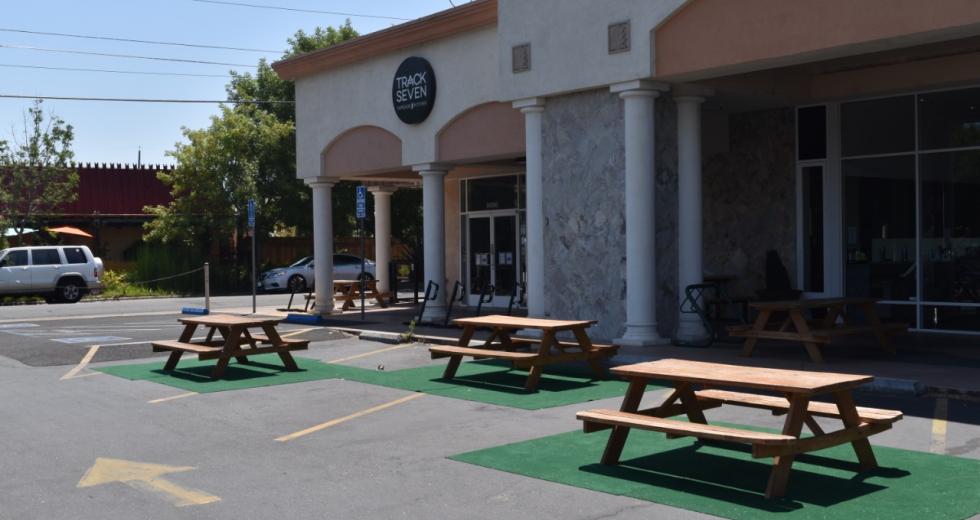Russell Rawlings hasn’t been going out much the past few
months.
Prior to the COVID-19 global pandemic, Rawlings and his motorized
wheelchair could be seen frequently around Sacramento’s downtown.
Rawlings, who has cerebral palsy, ran for mayor in 2016 and has
been an active voice on a variety of public issues, including
working as statewide community organizer with the
Disability Organizing Network, which works to include people
with disabilities in the discussions that affect them through
education, advocacy and organization.
But Rawlings has been generally staying inside his North Oak Park
home while coronavirus cases have proliferated. “I’ve been taking
the social distancing very seriously,” Rawlings says. “I feel
very privileged that I have a support system that can allow me to
do that.”
It also helps Rawlings avoid sidewalks that have become tricky to
navigate during the pandemic, as the city has actively encouraged
eateries to operate outside through its Farm to Fork Al
Fresco program. While the city urges eateries to place tables
on private property whenever possible to limit legal liability
for the city, it’s also been providing free permitting for those
that would like to place tables in the public right-of-way.
The Al Fresco program has helped restaurants — and given them
another way to be financially viable — at a historically tough
time. But it’s also created some disability access issues,
affecting a group of people already well-versed in dealing with
the sort of challenges a nondisabled person might never think
about.
“We’re getting ready to celebrate the 30th anniversary of the
(American with Disabilities Act) this month,” Rawlings
says. “I think for me, it’s more of an equity issue, right? What
does it look like for a person who is disabled and uses a
mobility device and is living in … a neighborhood that is not
well-connected to services?”
Barriers move pedestrians off the sidewalk outside Paesanos in
Midtown Sacramento.
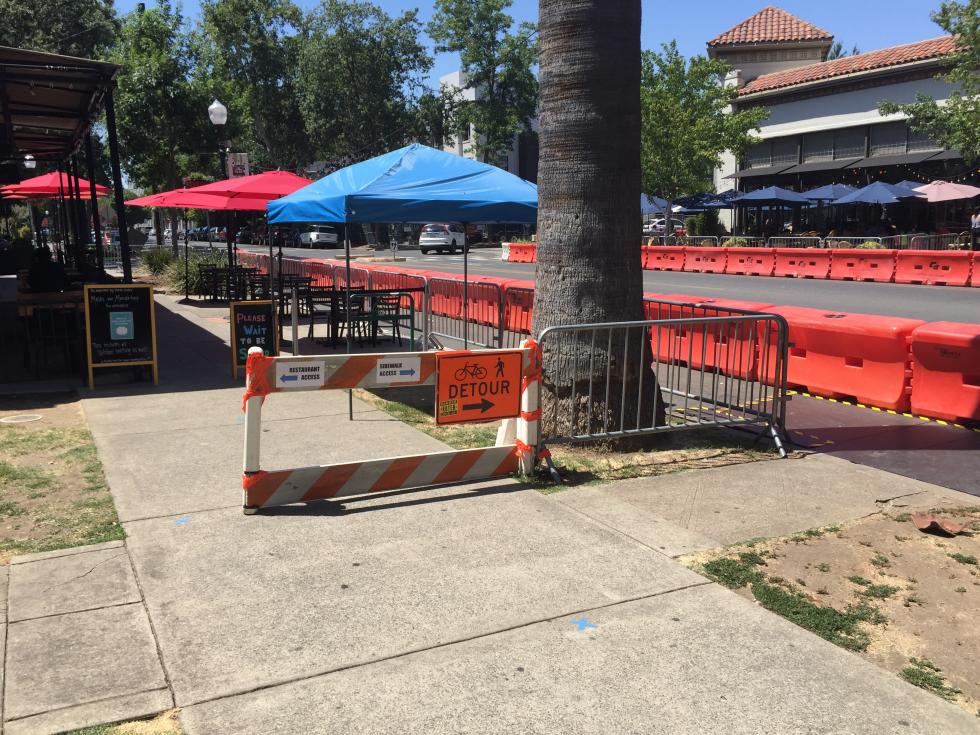
Josh Werner, an engineer who frequently handles ADA-related
issues for the city through its public works department, says the
response to the Al Fresco program has been largely positive as
roughly 80 Sacramento restaurants have obtained permits to
operate in the public right-of-way, such as on sidewalks or in
streets. For example, 20th Street has been closed to vehicular
traffic outside of Lowbrau, with tables set up and a temporary
stand for purchasing food and drinks.
But Werner also says the city received a complaint emailed July
4, related to Track 7 The Other Side on Folsom Boulevard. The
complainant, whose name was blacked out in a copy of the email
that Werner provided to Comstock’s, wrote that the venue had
expanded seating onto a sidewalk, with barricades extending into
the street. “Allowing businesses to expand their seating onto
sidewalks creates a hazard for wheelchair users and other
disabled individuals who need access to the sidewalk,” the
complainant wrote.
A similar situation could be seen outside Paesanos in Midtown,
where orange barriers herd pedestrians off the sidewalk and onto
the curb around tables set up on sidewalks in front of the
restaurant.
Werner says accessibility issues are the first thing the city
assesses when considering approving outdoor dining venues. He
also says Paesano’s, which is permitted, is “supposed to have a
ramp (off the curb) and 5-feet-width for the alternate path,
which is how it was when it was installed” and that the city
coordinated with a contractor “to ensure sufficient space.”
Still, even with the care taken, it doesn’t look easy for wheelchair users to maneuver their chairs down the ramp and walkway, particularly with other pedestrians around.
There’s also a question of what businesses might do after their inspections and how residents might call attention to violations. Werner says the city “does check in on the permitted various dining sites,” but says regular inspections are costly. The city turns to property business improvement districts, or PBIDs, such as the Midtown Business Association to manage and maintain many of the sites. There isn’t a dedicated portal for residents to file complaints, though Werner said they could be submitted by emailing the city.
That all might not be sufficient for someone like Rawlings. “I’ve kind of been avoiding, honestly, a lot of Midtown,” he says.
As for the situation with Track 7 The Other Side, it was quickly
corrected. Werner says the location wasn’t permitted for
right-of-way seating. He got the email the Monday morning after
it came in and says the city shut down the unpermitted sidewalk
seating “the first day.” Werner spoke with representatives from
Track 7, ultimately prevailing upon them to move tables into
parking spaces in front of the business and an adjacent salon,
where permits aren’t needed.
“We’re trying to help out restaurants,” Werner says. “This is a
tough time for everybody, there’s people going out of business.
We knew the success of the program would be based on how it
doesn’t inconvenience the public too much. That’s why every
single one of these we look at, we’re ensuring we’re able to move
pedestrians around safely.”
Track 7 owner Ryan Graham didn’t respond to requests for comment.
Gabrielle Garcia, a manager at Face & Body Emporium next door,
says the owners of the business where she works are letting Track
7 put tables free of charge in some of its parking space. “We all
pay rent at this property, so we’re trying to do the best we can
to support these small businesses and help out one another,”
Garcia says.
That’s the same attitude Rawlings has had in his infrequent trips
out to places like the Saturday Oak Park Farmers Market and the
Sacramento Natural Foods Co-op, sometimes offering to grab things
for friends.
“This is a time where we really need to focus on building mutual
networks of support,” Rawlings says. “I think it’s a matter of
really honestly just getting back to that basic mutual reliance
upon one another that we have.”
–
Stay up to date on the effects of the coronavirus on people and business in the Capital Region: Subscribe to the Comstock’s newsletter today.
Recommended For You
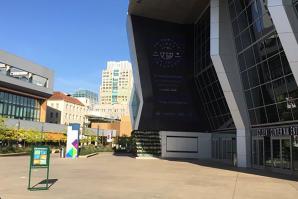
Holding Pattern
Variety of local businesses shuttered by COVID-19 await reopening
Comstock’s has been following four businesses that have been helping to drive the resurgence of Sacramento’s central city in recent years. Here’s how they’re faring a month into the shutdown.
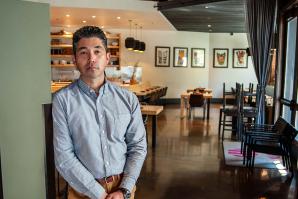
How Are Sacramento Restaurants Handling the Coronavirus?
The coronavirus quarantine has devastated the Sacramento restaurant scene. We talked to several prominent local restaurateurs to see how they are handling the situation.
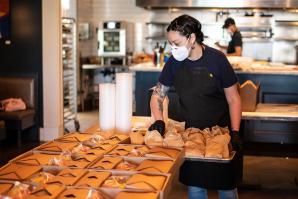
All in the Family
Capital Region restaurants initiate meal delivery programs to help vulnerable populations
Though restaurants are among the businesses hit hardest by the coronavirus, local restaurateurs have pooled their resources to help seniors, low-income families and others access food.
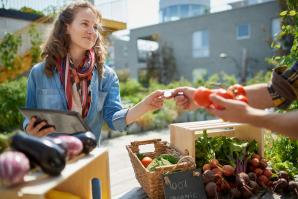
To Lessen the Impacts of COVID-19: Adopt a Local Business
As COVID-19 destroys more American lives than the Vietnam War and more American jobs than the Great Depression, all of us are being called to consider acts of adoption. Here’s an easy possibility: Adopt your favorite local business.



